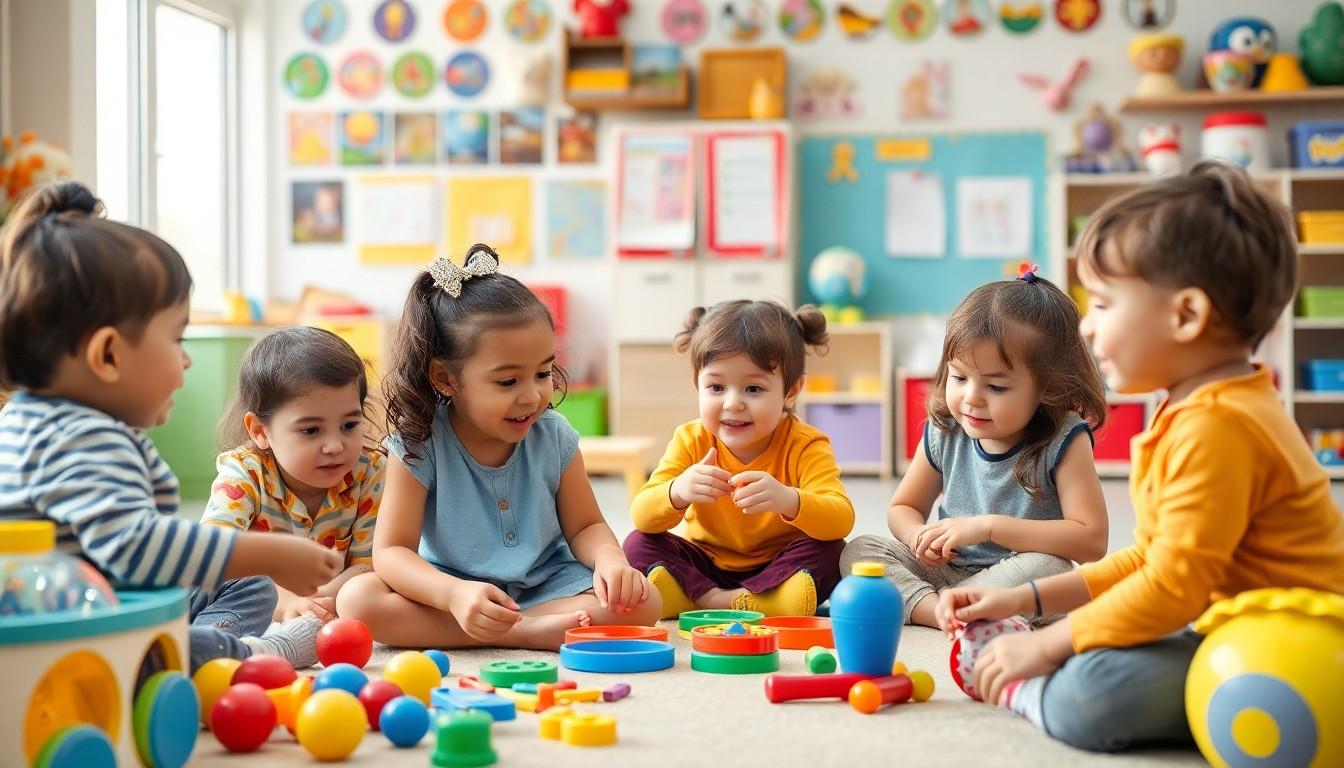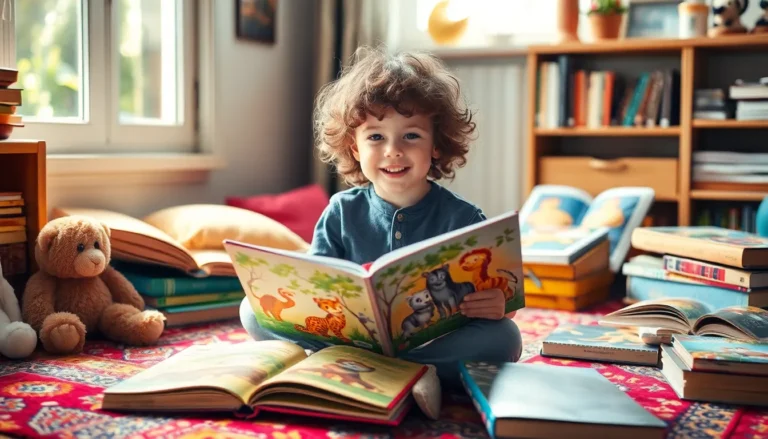Table of Contents
ToggleIn the whimsical world of early childhood education, words hold immense power. A well-placed quote can inspire teachers, motivate parents, and even make toddlers giggle—yes, even toddlers have a sense of humor! From the sage wisdom of educators to the playful musings of children, these quotes capture the essence of learning during those formative years.
Imagine a classroom where every wall is adorned with quotes that spark curiosity and creativity. It’s like adding a sprinkle of magic to the mundane! These nuggets of wisdom not only encourage growth but also remind everyone involved that education is a journey filled with laughter, discovery, and a bit of chaos. Dive into the delightful world of early childhood education quotes and see how they can transform the learning experience into something truly memorable.
Importance Of Early Childhood Education Quotes
Quotes in early childhood education serve as powerful tools that inspire, motivate, and entertain, enriching children’s learning experiences. These words can shape a classroom environment, making it vibrant and engaging.
Inspiring Educators
Quotes can ignite passion in educators, reminding them of their vital role in shaping young minds. They provide affirmations that fuel creativity and resilience in teaching. Encouraging phrases also serve as daily motivation, reinforcing the idea that teaching is a lasting influence in a child’s life. For instance, reflecting on a quote from renowned educator Maria Montessori can clarify teaching philosophies. Each quote holds the potential to inspire innovative practices and lead teachers toward a more fulfilling educational journey.
Motivating Parents
Parents find strength and encouragement in early childhood education quotes, impacting their engagement with their child’s learning. Motivational words foster a deeper connection to the educational process, highlighting their crucial role at home. Quotes illuminate the significance of parental involvement, making them aware of their influence on a child’s development. Engaging with these quotes can cultivate a supportive atmosphere that nurtures children’s growth. A thoughtful reminder about the power of love in learning resonates, encouraging parents to participate actively in their child’s education.
Famous Early Childhood Education Quotes

Quotes resonate deeply within early childhood education, acting as catalysts for inspiration and engagement. They enhance the learning environment, encouraging curiosity and creativity.
Quotes By Renowned Educators
Renowned educators offer profound insights that shape teaching philosophies. Maria Montessori stated, “The child is both a hope and a promise for mankind.” This highlights the importance of nurturing potential. John Dewey emphasized, “If we teach today’s students as we taught yesterday’s, we rob them of tomorrow.” His words remind educators of the need for innovative teaching methods. Additionally, Fred Rogers shared, “Play is often talked about as if it were a relief from serious learning. But for children, play is serious learning.” This emphasizes the significance of play in education.
Quotes From Childhood Development Experts
Experts in childhood development articulate essential principles that guide educational practices. Jean Piaget expressed, “Play is the work of the child,” stressing the critical role of play in cognitive development. Lev Vygotsky noted, “What a child can do today with assistance, she will be able to do by herself tomorrow.” This underscores the importance of scaffolding in learning experiences. Lastly, Benjamin Spock remarked, “Trust yourself. You know more than you think you do.” This quote serves as a powerful reminder for parents and educators alike to trust their instincts and knowledge.
How Quotes Influence Early Childhood Education
Quotes play a vital role in early childhood education by inspiring educators, involving parents, and engaging children. These words create an enriching environment that stimulates curiosity and creativity.
Enhancing Learning Environments
Incorporating quotes into learning spaces enhances their appeal. Teachers often adorn classrooms with inspirational sayings to motivate students. When students see quotes, they feel encouraged to learn and explore. Welcoming phrases can foster a sense of belonging. Various quotes reflect values such as kindness, perseverance, and teamwork, aligning with social-emotional development. Incorporating visuals alongside quotes can strengthen their impact through constant reinforcement.
Shaping Educational Practices
Quotes significantly shape educational practices by influencing teaching philosophies. Renowned educators’ words inspire innovation and emphasize student-centered learning. Each influential quote serves as a guiding principle for effective teaching approaches. Educators often revisit these words in discussions or professional development workshops, ensuring relevance throughout their careers. Such insights encourage reflection on best practices. Techniques derived from quotes support a more engaging curriculum, ensuring educators provide versatile and relevant learning experiences.
Incorporating Quotes Into Your Teaching
Quotes can transform the classroom environment, sparking inspiration and engagement among students. Utilizing quotes effectively encourages both learning and personal growth.
Creative Ways To Use Quotes
Integrating quotes in lessons can enhance engagement. Teachers can prompt discussions by asking students how they interpret a particular quote. For instance, introducing a quote about perseverance can lead to sharing personal experiences related to overcoming challenges. Incorporating quotes into visual aids also captures attention. Posters featuring quotes can serve as daily reminders of positive values. Additionally, including quotes in writing assignments enhances creative expression. Assigning students to reflect on quotes in their own words fosters critical thinking.
Building A Quote Wall
Creating a quote wall symbolizes a community of inspiration. Designating a space in the classroom for quotes allows students to contribute their favorites. Frequently changing the quotes keeps the environment fresh and stimulating. Selecting quotes that align with current themes or lessons reinforces learning objectives. Moreover, highlighting quotes from diverse authors emphasizes inclusivity. The quote wall becomes a visual reminder of the values discussed in class and inspires everyday interactions. Engaging students in maintaining the wall fosters ownership and creativity.
Quotes in early childhood education are more than just words on a wall. They serve as catalysts for inspiration and engagement in the classroom. By incorporating these powerful messages into learning environments, educators can nurture creativity and foster a sense of community among students.
The impact of quotes extends beyond the classroom, motivating parents to actively participate in their child’s educational journey. As these words resonate, they encourage a deeper understanding of the importance of social-emotional development and lifelong learning. Embracing quotes in education not only enriches the learning experience but also shapes a positive and vibrant atmosphere where children can thrive.






